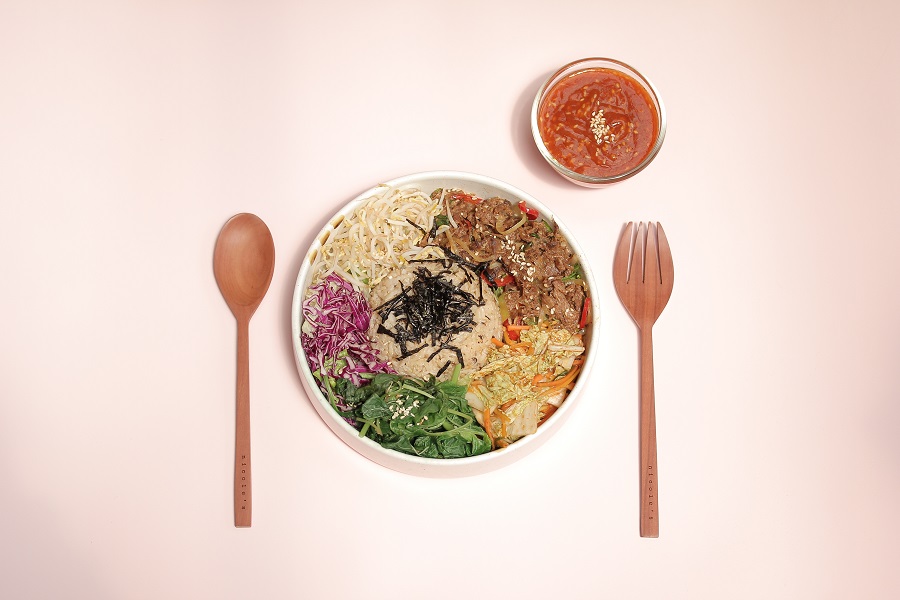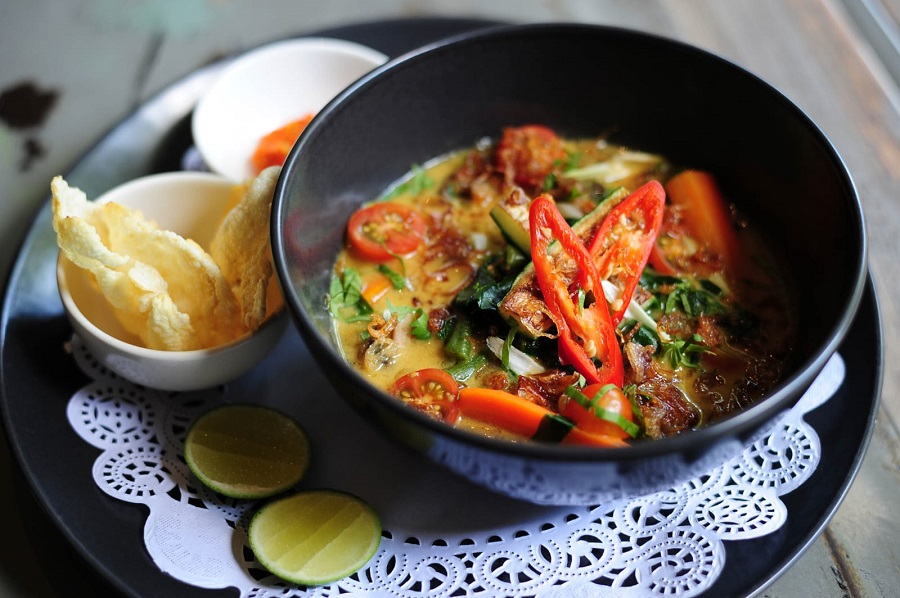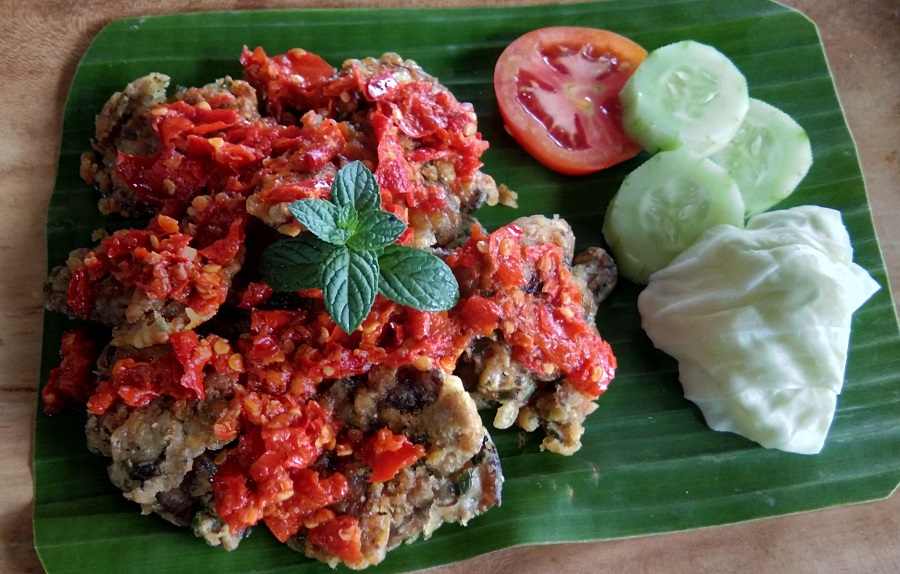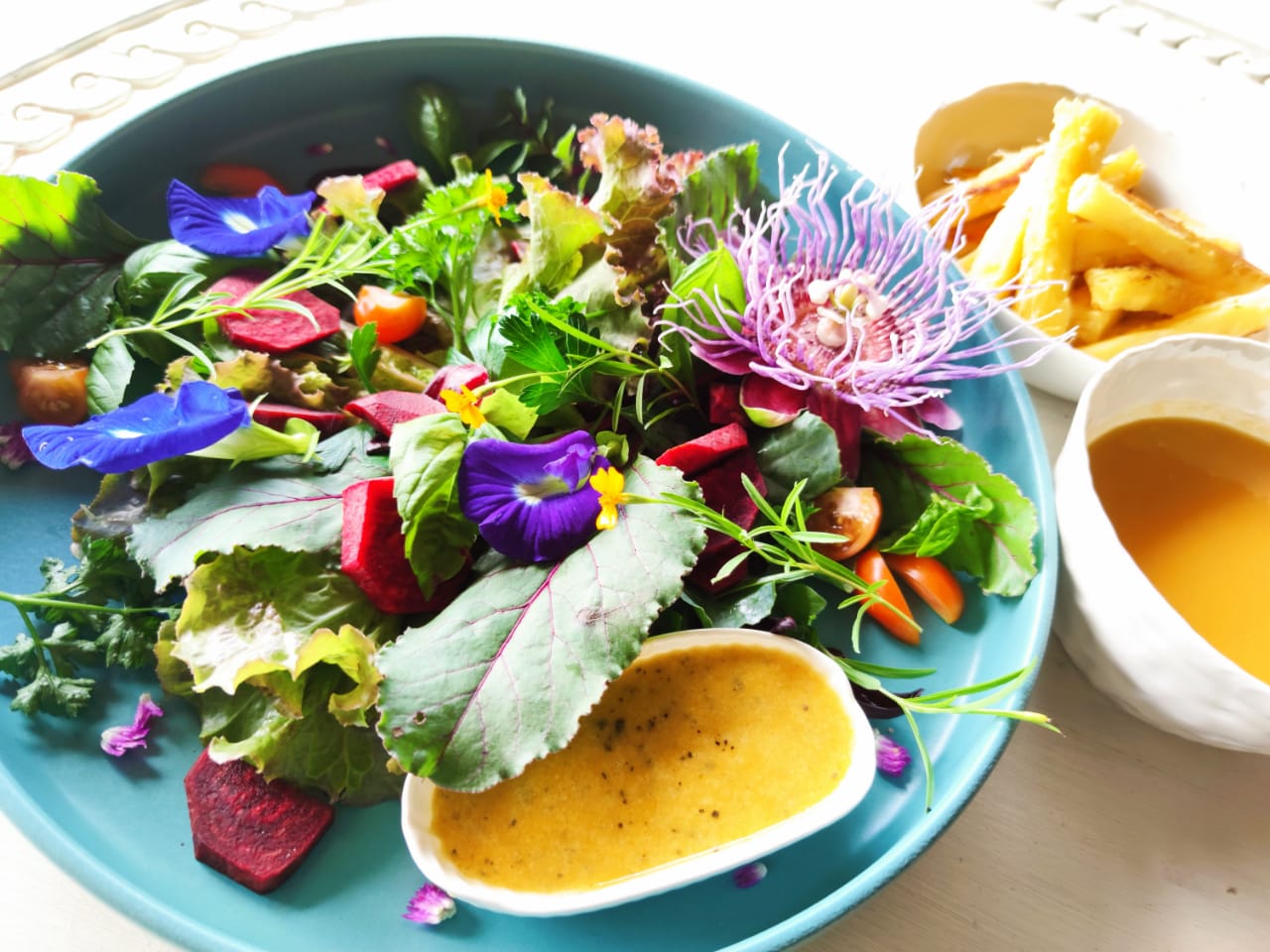After two years of essentially no events happening on the island, we are beginning to see the much-anticipated return of large-scale festivals in Bali. Adding to the list is an upcoming festival that will surely excite vegan and vegetarian practitioners on the island – the Ubud International Vegan Festival 2022.

Held across 3 days at The Mansion Resort, Ubud, the Ubud International Vegan Festival 2022 is set to become one of the biggest vegan festivals in Indonesia. Themed the ‘Heart & Soul of Veganism’, which reflects the nature of the host location of Bali, in regards to its unique, diverse and spiritual aspect of the island. The festival strives to be the most diverse vegan festival, inviting more than 30 speakers, both local and international, including speakers from Singapore, India, Malaysia, and more. The festival expects to have over 3000 local and international attendees across the three-day event.
The Festival Events, Programmes and Offerings




The festival will feature over 75 vendor stalls that sell a variety of vegan goods, from food and beverages to health supplements, and so much more. During the festival, visitors can enjoy various events, from talk shows from the guest speakers, live cooking demos, vegan healings, cooking competitions, workshops, arts & crafts bazaar, yoga, fashion show, lucky draw, and dance music and cultural performances.
Professional Guest Speakers
Several announced guest speakers include Dr. Drs. Susianto, M.KM (President of World Vegan Organisation & Vegan Society of Indonesia); Prof. Dr. Seto Mulyadi, M.Si, Psikolog (Ketua Lembaga Perlindungan Anak Indonesia & World Vegan Organisation Indonesia); Kaka Slank (Vegan Musician); Dr. Mythri Shankar (Co-Founder The Green Foundation India, TEDx Speaker); Dr. Vythilingam P. (Former President of MVS Malaysia & APVU); Jennifer Tan Sok Lim (Chair of World Vegan Organisation, Singapore); Raj Kumar (President of MVS Malaysia); Rudy J (Vice Chair of WVO Australia); Chok KC (Vice Chair of WVO Malaysia); Chef Dave (Vegan Chef); Savitri Devi (Founder of Kundalini YogaBali, KRI Professional Trainer); and Sayuri Tanaka (Owner and Founder of Sayuri Healing Food Academy & Café); with more speakers expected to be announced soon.
History of Veganism in Bali
Over the last decade, the concept of veganism in Bali has exponentially become more and more popular, with areas such as Ubud (and now Canggu) becoming known for their extensive library of vegan dining destinations. However, the rise of vegan-friendly establishments in Bali was kick-started by humble establishments such as Happy Buddha, the pioneering vegan restaurant in Bali that opened back in 1998, and Depot Rahayu Vegetarian before that.
From then, more affordable vegan-friendly establishments began to open in Denpasar, Kuta and Seminyak. When Zula Vegetarian Paradise opened in 2002, it launched a trend in Bali for eateries offering international vegan cuisines.
With the surge of tourism on the island, where visiting tourists and long-term expats settle in Bali, vegan businesses began to blossom throughout the 2010s, especially in tourist hotspots such as Seminyak, Canggu and Ubud. In Canggu, there are at least 83 vegan-friendly eateries, out of which 14 are fully vegan, 13 vegetarian and 56 offering vegan options, while Ubud has at least 11 fully vegan eateries, 37 vegetarian restaurants and 81 venues offering vegan options.
With this festival, they are aiming to capture the essence and celebrate Veganism in Bali, with the purpose of the festival to share knowledge, motivate and enlighten an alternative way of living.
Ubud International Vegan Festival 2022 prides itself to be a sustainable and environmentally conscious event by using eco-friendly friendly materials across all festival sites. The festival has also partnered with KLOOK to arrange free shuttle buses to the festival site for visitors from several popular hotspots in Bali including Canggu, Seminyak, Uluwatu and Sanur.
What are the benefits of a Plant-Based diet?
A plant-based diet is a beneficial way to achieve better health, with a diet that comprises exclusively plant-based foods, such as fruits, vegetables, whole grains, and nuts, abstaining from the consumption of meats, dairy and eggs.
Rich in fibre, vitamins and minerals, plant foods are low in calories and saturated fat and consuming them provides all the protein, calcium, and other essential nutrients the body requires. It is also crucial to include dependable sources of vitamin B12 in your diet, which can easily be found in food sources such as tempe or fortified foods including fortified cereals, plant-based milk and nutritional yeast.
Research has shown that a plant-based diet lowers the risk of heart disease, Type 2 Diabetes, obesity, cancer, brain health, and other health problems, as well as supports weight loss and is less expensive than an omnivorous diet.
Moreover, a Plant-Based diet could potentially prevent more unsettling outbreaks in the future as seen from the devastating impacts of the COVID-19 pandemic, which undoubtedly affected how we live our lives as a society. While it’s important to acknowledge how the pandemic has affected our global society and economy, it would be wise to dive into the root causes of pandemics in general, if we aim to minimise the risk of potential future outbreaks.
Through exploring the significant connection between the current crisis and our animal-based food systems, the report from the United Nations Environment Programme (UNEP) spotlights how our food choices are helping to create recipes for preventing zoonotic pandemics. “By switching to plant-based foods, we can help minimize the risk of future pandemics, as well as help solve many of the other major challenges we face, including climate change, loss of biodiversity, world hunger, antimicrobial resistance, and the emergence of other food-related diseases.”
The report also says that among new diseases affecting humans, an estimated 75% are believed to be of animal origins such as Middle East respiratory syndrome in bats and Zika virus in primates. Research has shown that animals can be intermediate hosts, acquiring disease from other animals and transmitting it to humans. This form of transmission is especially concerning in our broad food chain, where we may not have direct contact with the original host animal yet can still get infected. There are also risks in farms where animal products are produced and in the markets selling these products, as well as the risk of human-to-human transmission where animal products are processed.


For more information, please email ubudveganfestival@gmail.com or follow their official Instagram page @ubudveganfestival for updates.
Ubud International Vegan Festival 2022 will be held from Friday to Sunday, 23-25 September 2022, from 10am to finish. This event is open to the general public with free entry.
Ubud International Vegan Festival 2022
at The Mansion Resort, Ubud
Jl. Penestanan, Sayan, Ubud
ubudveganfestival@gmail.com
@ubudveganfestival









